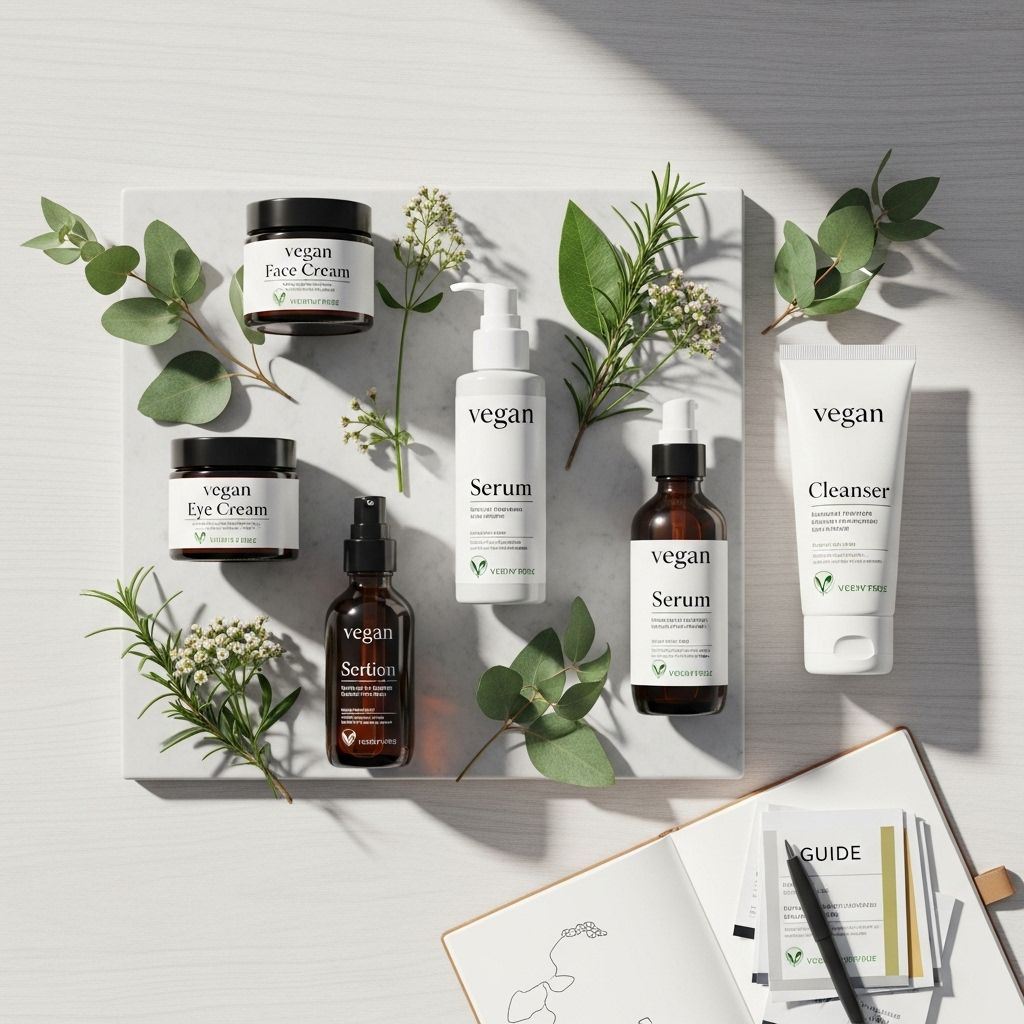Vegan & Cruelty-Free Skincare Ingredient Check
Transparent ingredients and trusted seals let you choose products that honor your values.

Introduction to Vegan & Cruelty-Free Skincare
Over the recent years, there has been a growing interest in adopting a more ethical and sustainable lifestyle, including choosing vegan and cruelty-free skincare products. While these terms are often used interchangeably, they have distinct meanings. Vegan skincare refers to products that do not contain any animal-derived ingredients, while cruelty-free skincare ensures that the products or their ingredients have not been tested on animals. This article is designed to provide a comprehensive guide on how to check if your skincare products align with these principles.
Understanding Vegan Skincare Ingredients
When shopping for vegan skincare, it’s crucial to be familiar with common animal-derived ingredients. Some of these include:
- Lanolin: Derived from sheep’s wool, it is commonly used in moisturizers and balms.
- Beeswax: Used in lip balms and moisturizers for its emollient properties.
- Collagen: Found in some skincare products, particularly in anti-aging creams.
- Honey: Sometimes used for its antibacterial and moisturizing properties.
- Squalene: Can be derived from sharks or olives—ensure it’s plant-based.
Understanding Cruelty-Free Skincare
Cruelty-free skincare refers to products that have not been tested on animals. This does not necessarily mean the product is vegan, as it could still contain animal-derived ingredients. Leaping Bunny certification is one of the most recognized indicators of cruelty-free products.
Ingredient Checks for Vegan & Cruelty-Free Skincare
To ensure your skincare is both vegan and cruelty-free, follow these steps:
- Check the Ingredients List: Look for explicit mentions of animal-derived ingredients like lanolin, beeswax, or honey.
- Certifications: Look for certifications like Leaping Bunny or PETA’s Cruelty-Free logo to ensure the product is cruelty-free.
- Research the Brand: Many brands explicitly state their commitment to vegan and cruelty-free practices. Check their official website or social media for such statements.
Benefits of Vegan & Cruelty-Free Skincare
Choosing vegan and cruelty-free skincare not only aligns with ethical values but also offers numerous benefits for the skin and the environment:
- Reduced Allergic Reactions: Plant-based ingredients can be less irritating for sensitive skin.
- Environmental Sustainability: Many vegan skincare products use sustainable and eco-friendly packaging and ingredients.
- Rich in Vitamins and Antioxidants: Plant-derived ingredients often provide essential vitamins and antioxidants beneficial for skin health.
Common Misconceptions About Vegan Skincare
There are several misconceptions about vegan skincare that need to be addressed:
- Myth: Vegan Skincare is Always Better for You: While vegan skincare can offer fewer irritants, it is not immune to causing allergic reactions, especially if you have specific plant allergies.
- Myth: Cruelty-Free Automatically Means Vegan: These terms are distinct; cruelty-free refers to testing practices, not ingredients.
Popular Vegan & Cruelty-Free Skincare Brands
Here are some popular brands that offer vegan and cruelty-free skincare options:
- Glow Recipe: Known for their clean and effective skincare products, certified by Leaping Bunny.
- Huron: Offers a range of vegan and cruelty-free products, emphasizing natural ingredients.
FAQs
Q: What is the difference between vegan and cruelty-free skincare?
A: Vegan skincare refers to products that do not contain animal-derived ingredients, while cruelty-free skincare means the products or ingredients have not been tested on animals.
Q: How do I check if a skincare product is vegan and cruelty-free?
A: Check the ingredients list for animal-derived ingredients, look for certifications like Leaping Bunny, and research the brand’s policies on animal testing and ingredient sourcing.
Q: Are vegan skincare products better for the skin?
A: Vegan skincare can be beneficial due to fewer potential irritants, but it is not automatically better for everyone. Always check the ingredients for any plant allergies or sensitivities you may have.
Conclusion
In conclusion, choosing vegan and cruelty-free skincare is not only a matter of ethical preference but also contributes to a more sustainable and conscious beauty routine. By understanding the differences between these terms and implementing a thorough ingredient check, you can ensure your skincare aligns with your values.
References
- https://us.upcirclebeauty.com/blogs/upcircle/non-vegan-skincare-ingredients
- https://www.hustlebutter.com/blog/what-is-vegan-skincare/
- https://www.glowrecipe.com/pages/formulations
- https://usehuron.com/blogs/journal/vegan-and-cruelty-free-skincare-explained
- https://www.shoplikeyougiveadamn.com/en-us/blogs/25-common-animal-ingredients-in-cosmetics/bl-350
- https://formulabotanica.com/vegan-cruelty-free-cosmetics/
- https://cosmetics.alfa-chemistry.com/resources/what-are-the-ingredients-in-vegan-and-cruelty-free-cosmetics.html
- https://www.peta.org/living/food/animal-ingredients-list/
- https://vegancuts.com/blogs/1/vegan-skincare-guide
- https://thegoodnessproject.co.uk/blog/natural-organic-skincare-ingredients
Read full bio of Sneha Tete












